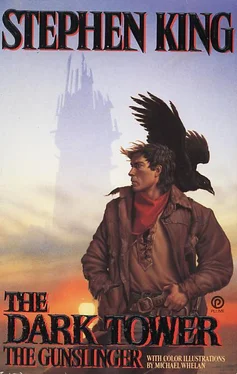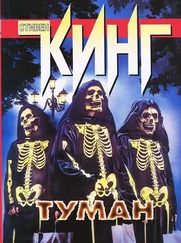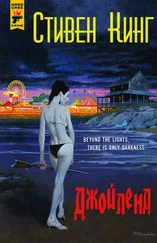bond paper, not even a ream of those colorful “second sheets” that many struggling writers use because those reams of colored sheets (often with large chunks of undissolved wood floating in them) are three or four dollars cheaper.
The ream of paper I inherited was bright green, nearly as thick as cardboard, and of an extremely eccentric size– about seven inches wide by about ten inches long, as I recall. I was working at the University of Maine library at the time, and several reams of this stuff, in various hues, turned up one day, totally unexplained and unaccounted for. My wife-to-be, the then Tabitha Spruce, took one of these reams of paper (robin’s egg blue) home with her; the fellow she was then going with took home another (Roadrunner yellow). I got the green stuff.
As it happened, all three of us turned out to be real writers—a coincidence almost too large to be termed mere coincidence in a society where literally tens of thousands (maybe hundreds of thousands) of college students aspire to the writer’s trade and where bare hundreds actually break through. I’ve gone on to publish half a dozen novels or so, my wife has published one (Small World) and is hard at work on an even better one, and the fellow she was going with back then, David Lyons, has developed into a fine poet and the founder of Lynx Press in Massachusetts.
Maybe it was the paper, folks. Maybe it was magic paper. You know, like in a Stephen King novel.
Anyway, all of you out there reading this may not understand how fraught with possibility those five hundred sheets of blank paper seemed to be, although I’d guess there are plenty of you who are nodding in perfect understanding right now. Publishing writers can, of course, have all the blank paper they want; it is their stock-in-trade. It’s even tax deductible. They can have so much, in fact, that all of those blank sheets can actually begin to cast a malign spell
–better writers than I have talked about the mute challenge
of all that white space, and God knows some of them have been intimidated into silence by it.
The other side of the coin, particularly to a young writer, is almost unholy exhilaration all that blank paper can bring on; you feel like an alcoholic contemplating a fifth of whiskey with the seal unbroken.
I was at that time living in a scuzzy riverside cabin not far from the University, and I was living all by myself —the first third of the foregoing tale was written in a ghastly, unbroken silence which I now, with a houseful of rioting children, two secretaries, and a housekeeper who always thinks I look ill, find hard to remember. The three roommates with whom I had begun the year had all flunked out By March, when the ice went out of the river, I felt like the last of Agatha Christie’s ten little Indians.
Those two factors, the challenge of that blank green paper, and the utter silence (except for the trickle of the melting snow as it ran downhill and into the Stillwater), were more responsible than anything else for the opening lay of The Dark Tower. There was a third factor, but without the first two, I don’t believe the story ever would have been written.
That third element was a poem I’d been assigned two years earlier, in a sophomore course covering the earlier romantic poets (and what better time to study romantic poetry than in one’s sophomore year?). Most of the other poems had fallen out of my consciousness in the period between, but that one, gorgeous and rich and inexplicable, remained.., and it remains still. That poem was “Childe Roland,” by Robert Browning.
I had played with the idea of trying a long romantic novel embodying the feel, if not the exact sense, of the Browning poem. Play was as far as things had gone because I had too many other things to write – poems of my own, short stories, newspaper columns, God knows what.
But during that spring semester, a sort of hush fell over my previously busy creative life– not a writer’s block, but a sense that it was time to stop goofing around with a pick and shovel and get behind the controls of one big great God a' mighty steam shovel, a sense that it was time to try and dig something big out of the sand, even if the effort turned out to be an abysmal failure.
And so, one night in March of 1970, I found myself sitting at my old office-model Underwood with the chipped ‘m’ and the flying capital ‘0’ and writing the words that begin this story: The man in black/led across the desert and the gun-slinger followed.
In the years since I typed that sentence, with Johnny Winter on the stereo not quite masking the sound of melting snow running downhill outside, I have started to go gray, I have begotten children, I have buried my mother, I have gone on drugs and gone off them, and I’ve learned a few things about myself – some of them rueful, some of them unpleasant, most of them just plain funny. As the gunslinger himself would probably point out, the world has moved on.
But I’ve never completely left the gunslinger’s world in all that time. The thick green paper got lost somewhere along the way, but I still have the original forty or so pages of typescript, comprising the sections titled “The Gunslinger” and “The Way Station.” It was replaced by a more legitimate-looking paper, but I remember those funny green sheets with more affection than I could ever convey in words. I came back to the gunslinger’s world when Salem’s Lot was going badly (“The Oracle and the Mountains”) and wrote of the boy Jake’s sad ending not long after I had seen another boy, Danny Torrance, escape another bad place in The Shining In fact, the only time when my thoughts did not turn at least occasionally to the gunslinger’s dry and yet somehow gorgeous world (at least it has always
seemed gorgeous to me) was when I was inhabiting another that seemed every bit as real – the post-apocalypse world of The Stand. The final segment presented here, “The Gunslinger and the Man in Black,” was written less than eighteen months ago, in western Maine.
I believe that I probably owe readers who have come this far with me some sort of synopsis (“the argument,” those great old romantic poets would have called it) of what is to come, since I’ll almost surely die before completing the entire novel.., or epic… or whatever you’d call it. The sad fact is that I can’t really do that. People who know me understand that I am not an intellectual ball of fire, and people who have read my work with some critical approval (there are a few; I bribe them) would probably agree that the best of my stuff has come more from the heart than from the head… or from the gut, which is the place from which the strongest emotional writing originates.
All of which is just a way of saying that I’m never completely sure where I’m going, and in this story that is even more true than usual. I know from Roland’s vision near the end that his world is indeed moving on because Roland's universe exists within a single molecule of a weed dying in some cosmic vacant lot (I think I probably got this idea from Clifford D. Simak’s Ring Around the Sun; please don’t sue me, Cliff!), and I know that the drawing involves calling three people from our own world (as Jake himself was called by the man in black) who will join Roland in his quest for the Dark Tower– I know that because segments of the second cycle of stories (called “The Drawing of the Three”) have already been written.
But what of the gunslinger’s murky past? God, I know so little. The revolution that topples the gunslinger’s “world of light”? I don’t know. Roland’s final confrontation with Marten, who seduces his mother and kills his father? Don’t know. The deaths of Roland’s compatriots, Cuthbert and Jamie, or his adventures during the years between his
Читать дальше








